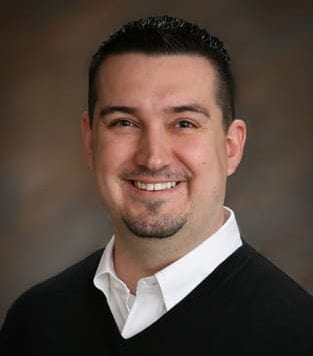Steph (Jeong Ha) Choi, Ph.D. – Post-Doctoral Fellow

Originally from South Korea, Steph grew up exposed to both US and Korean culture. Prior to joining the Developmental Neuropsychology Across the Lifespan Lab, she received her PhD in Social Psychology at the University of Wisconsin-Madison. Her research focuses on relatively overlooked sociocultural variability in the intersection of stress, health, and well-being based psychosocial factors related to health and well-being. Through her work, she hopes to highlight the importance of psychological diversity in understanding why some are more prone to health difficulties compared to others, and how such diversity can bring light to potential protective factors in the face of biological and/or socioenvironmental vulnerability. Please check out her website to learn more about her (https://sites.google.com/view/stephjhchoi/).
Holly Aleksonis, Ph.D.
Master’s Thesis: Quantification of White Matter Hyperintensities in Long-Term Survivors of Childhood Brain Tumor: Relationships with Cognition
General Exam: Relationships Among Structural Neuroimaging and Neurocognitive Outcomes in Adolescents and Young Adults with Congenital Heart Disease: A Systematic Review
Dissertation: Structural Brain Network Properties and Relationships with Cognition in Adolescents and Young Adults with Congenital Heart Disease
Holly grew up in New Hampshire and obtained her Bachelor’s of Science degree from the University of Mary Washington in 2016 with a major in Psychology and Neuroscience. Following her undergraduate degree, Holly worked as a full-time research assistant at Nationwide Children’s Hospital investigating neural mechanisms of executive and social-cognitive functioning following pediatric traumatic brain injury as well as neurocognitive sequelae after pediatric brain tumor. She entered GSU as a doctoral student in the Clinical Neuropsychology program under the mentorship of Dr. King in Fall 2018. Her research interests include utilizing neuroimaging and neuropsychological methods to identify neurocognitive outcomes in survivors of pediatric brain injury and disease. She is a former recipient of the Brains & Behavior Graduate Research Fellowship and the Dynamic Multiscale and Multimodal Brain Mapping Across the Lifespan (D-MAP) fellowship through GSU’s Center for Translational Research in Neuroimaging & Data Science (TReNDS).
Holly completed her pre-doctoral internship at Baylor College of Medicine/Texas Children’s Hospital. Holly is currently completing her postdoctoral fellowship at the Kennedy Krieger Institute in Baltimore, MD.
Eric Semmel, Ph.D.

Master’s Thesis: Posterior cerebellar volume and executive functioning in young adults with congenital heart disease
General Exam: Graph Theoretical Analysis of Brain Network Characteristics in Brain Tumor: A Systematic Review
Dissertation: Graph analysis of resting state functional networks and associations with cognitive outcomes in survivors of pediatric brain tumor
Eric is originally from Syracuse, New York, and received his Bachelor of Arts from the University of Rochester in 2014 with a double major in Psychology and Environmental Studies. Following graduation, he worked for 2 years as a full-time research assistant at Nationwide Children’s Hospital in Columbus, OH, where he studied social outcomes in pediatric brain tumor survivors. Eric joined the King Lab at GSU as a Ph.D. student in clinical neuropsychology in the Fall of 2016. His research interests include the neuroanatomical and cognitive correlates of executive function and social cognition in survivors of pediatric neurological injury and disease. Most recently, his work has focused on graph analysis of brain network structure and function in survivors of brain tumors. He is a former recipient of the Brains & Behavior Graduate Fellowship through the GSU Neuroscience Institute as well as the Training in Integrated Pediatric Psychological Services (TIPPS) fellowship, and is currently funded by the Educating Psychologists in Innovative Care: Child and Adolescents Research and Empirical Services (EPIC-CARES) project funded by the Health Resources and Services Administration. Recently, he was a recipient of the Richard Morrell Outstanding Graduate Student in Psychology award.
Eric completed his Pre-Doctoral Internship in Health Service Psychology at Emory University School of Medicine in the Neuropsychology Track. He is currently completing a Medical Psychology Post-Doctoral Fellowship at Mayo Clinic on the pediatric neuropsychology track. Eric recently accepted an offer to stay on at Mayo Clinic as a Pediatric Neuropsychologist and Assistant Professor in the Departments of Pediatrics and Psychiatry & Psychology following the conclusion of his fellowship.
Rella Kautiainen, Ph.D.
Master’s Thesis: GSTP1 polymorphisms sex-specific association with verbal intelligence in survivors of pediatric medulloblastoma tumors
Dissertation: Models of Genomic Risk and Resiliency for Long-Term Neurocognitive Outcomes in Pediatric Medulloblastoma and Traumatic Brain Injury Survivors
Email Rella
Twitter: @RellaKautiainen
Rella grew up in Southern California and attended UC Berkeley where she obtained a Bachelors of Arts in Psychology. After graduation, Rella worked for three years in San Francisco. She worked for Joyable, a mental health technology company, as a cognitive behavioral coach which solidified her interest in clinical psychology. She also volunteered at University of San Francisco, as a research assistant, investigating the long-term medical outcomes for egg donors. Rella joined the King Lab as a doctoral student in Clinical Neuropsychology in the Fall of 2017. Her research focuses on utilizing neuroimaging, neuropsychological, and genomic methods to understand the variation in outcomes for long-term pediatric brain tumor survivors. She was a former recipient of the 2CI Neurogenomics Fellowship at GSU.
Rella completed her pre-doctoral internship at the University of New Mexico Health Sciences Center in Albuquerque, NM. She is currently completing her postdoctoral fellowship at the Kennedy Krieger Institute in Baltimore, MD. Rella recently accepted a position at Children’s Hospital of Orange County, where she will be helping to build the Oncology program following the conclusion of her fellowship.
Michelle Fox, Ph.D.

Master’s Thesis: Attention and functional connectivity in survivors of childhood brain tumors
General Exam: Functional connectivity in adult brain tumor patients: a systematic review
Dissertation: Task-Positive and Default Mode Network Components and Their Relation to Attention and Working Memory in Adult Survivors of Childhood Brain Tumors
Email Michelle
ResearchGate Profile
Michelle was a doctoral student in the Clinical Neuropsychology program and is originally from the suburbs of Chicago. She attended the University of Wisconsin-Madison for her undergraduate degree, graduating with a double major in Biology and Psychology in 2013. During her time at UW-Madison and for the year following her graduation, she worked as a research assistant in Dr. Richard Davidson’s Center for Healthy Minds. She began graduate school at Georgia State University in 2014, working in the King Lab studying long-term outcomes of survivors of childhood brain tumors. Her work has included functional and structural neuroimaging as well as investigations of the roles played by core cognitive functions and tumor and treatment factors in higher-order functioning. She completed her internship at the Minneapolis VA Healthcare System. Michelle accepted a postdoctoral fellowship in clinical neuropsychology at James A. Haley Veterans’ Hospital in Tampa, Florida.
Sarah Clark, Ph.D.

Master’s Thesis: Investigating Brain Networks with Insight in Adolescents at Ultra High-Risk for Schizophrenia
Dissertation: Relationships between cerebello-cortical functional connectivity and executive functioning across childhood and adolescence
Sarah was a doctoral student in the Clinical Neuropsychology program and was co-mentored by Jessica Turner. She is originally from the central coast of California and attended the University of California, San Diego, graduating with a B.S. in Physiology and Neuroscience. Sarah also attended University College Dublin in Ireland, where she conducted an independent research project on concussion in contact sport and earned a Higher Diploma in Psychology. She began graduate school at Georgia State University in 2014. Throughout graduate school, Sarah has investigated resting-state functional connectivity in schizophrenia, youth at risk for psychosis, and typically developing children and adolescents. She is especially interested in how function of the cerebellum affects cognition in typical neurodevelopment, healthy adulthood, and neuropsychiatric disorders. Sarah’s dissertation is titled, “Relationships between cerebello-cortical functional connectivity and executive functioning across childhood and adolescence.” She completed her internship in the Geriatric Neuropsychology track at VA Palo Alto Healthcare System. She accepted a postdoctoral fellowship in clinical neuropsychology at the Department of Veterans Affairs Palo Alto Health Care System.
Sabrina Na, Ph.D.
Sabrina Na is originally from Ann Arbor, Michigan. She attended the University of Michigan and obtained her Bachelor’s of Science in Neuroscience in 2012. She received her Ph.D. in 2019 from Georgia State University in the joint Clinical Psychology and Neuropsychology & Cognitive and Affective Neuroscience programs. She completed her pre-doctoral internship at the VA Boston Healthcare System in 2019 and her postdoctoral fellowship in neuropsychology at the Emory University Department of Rehabilitation Medicine. Dr. Na is an Assistant Professor in the Department of Rehabilitation Medicine in the Emory University School of Medicine. Her clinical and research interests are in long term outcomes from acquired brain injuries (particularly brain tumor, stroke, and traumatic brain injury), as well as use of network-based neuroimaging methods to understand the mechanisms through which neurological injuries result in variability in cognitive, emotional, and psychosocial outcomes.
Alyssa Ailion, Ph.D.
Dr. Alyssa Ailion grew up in the Atlanta area and completed her undergraduate and graduate work at Georgia State University under the direction of Dr. Tricia King. She completed her APA-approved pre-doctoral internship in pediatric clinical psychology and neuropsychology at Children’s Hospital Colorado, and her APPCN postdoctoral fellowship in pediatric neuropsychology at Children’s National Medical Center in Washington, DC. Alyssa is an Attending Neuropsychologist at Boston Children’s Hospital (BCH) / Harvard Medical School in their Department of Neurology and Psychiatry, Division of Epilepsy and Clinical Neurophysiology. She will provide neuropsychological evaluations for epilepsy patients and the surgical team, as well as conduct clinical fMRI research as her primary academic focus. Her current research focuses on improving the prediction of clinical outcomes by developing and refining innovative neuroimaging methods and technologies, such as neurodiagnostic applications of clinical fMRI, improving the measurement of neural mechanisms, and understanding the complex contributions of development and treatment-related factors. Alyssa’s long-term goal is to understand how the neural mechanisms of neurological disorders, such as epilepsy, and their treatments interact with brain networks and systems more broadly to disrupt behavior and cognition.
Kristen Smith, Ph.D.
Kristen is a pediatric neuropsychologist at Children’s of Alabama in Birmingham. She completed her PhD in Clinical Psychology at Georgia State University and completed her post-doctoral fellowship in neuropsychology and rehabilitation at the Birmingham VAMC.
Ryan Brewster, Ph.D.
Dr. Brewster is a Clinical Neuropsychologist at the DC WRIISC. He completed an undergraduate degree at the University of Miami and an MA and PhD in Clinical Psychology at Georgia State University. Dr. Brewster’s training also included an internship at the University of California-Los Angeles (UCLA) Semel Institute for Neuroscience and Human Behavior and a two-year postdoctoral fellowship in Clinical Neuropsychology (Traumatic Brain Injury/Rehabilitation Track) at the West Los Angeles VAMC. His clinical responsibilities at the DC WRIISC include conducting neuropsychological assessments of Veterans with a wide range of complex neurocognitive and emotional concerns, and supervising postdoctoral fellows specializing in neuropsychology. Dr. Brewster’s current research interests are in the combined application of neuroimaging and traditional neuropsychological assessment to better understand TBI and epilepsy, cognitive rehabilitation following TBI, and disentangling overlapping cognitive and emotional symptoms common in mTBI and PTSD.
Jackie Micklewright, Ph.D., ABPP-CN
After graduation, Jackie completed her postdoctoral fellowship at Mayo Clinic before attaining board-certification in neuropsychology (ABPP-CN). She currently leads the Department of Neuropsychology at Bethesda Hospital, within the M Health Fairview System in St. Paul, Minnesota.
John Ryan, Ph.D.
After graduation, John completed postdoctoral training in Cardiovascular Behavioral Medicine at the University of Pittsburgh. He is currently the statistical project manager for the lung transplant program at the University of Pittsburgh Medical Center.
Emily Papazoglou, Ph.D., ABPP-CN
After graduation, Emily completed a post-doctoral fellowship in pediatric neuropsychology at Kennedy Krieger Institute/Johns Hopkins Hospital. She then worked as a senior neuropsychologist at Children’s Healthcare of Atlanta. Emily now runs a private practice in Atlanta working with young children with neurological disorders. Please see http://dremilyneuropsych.com.Edit








